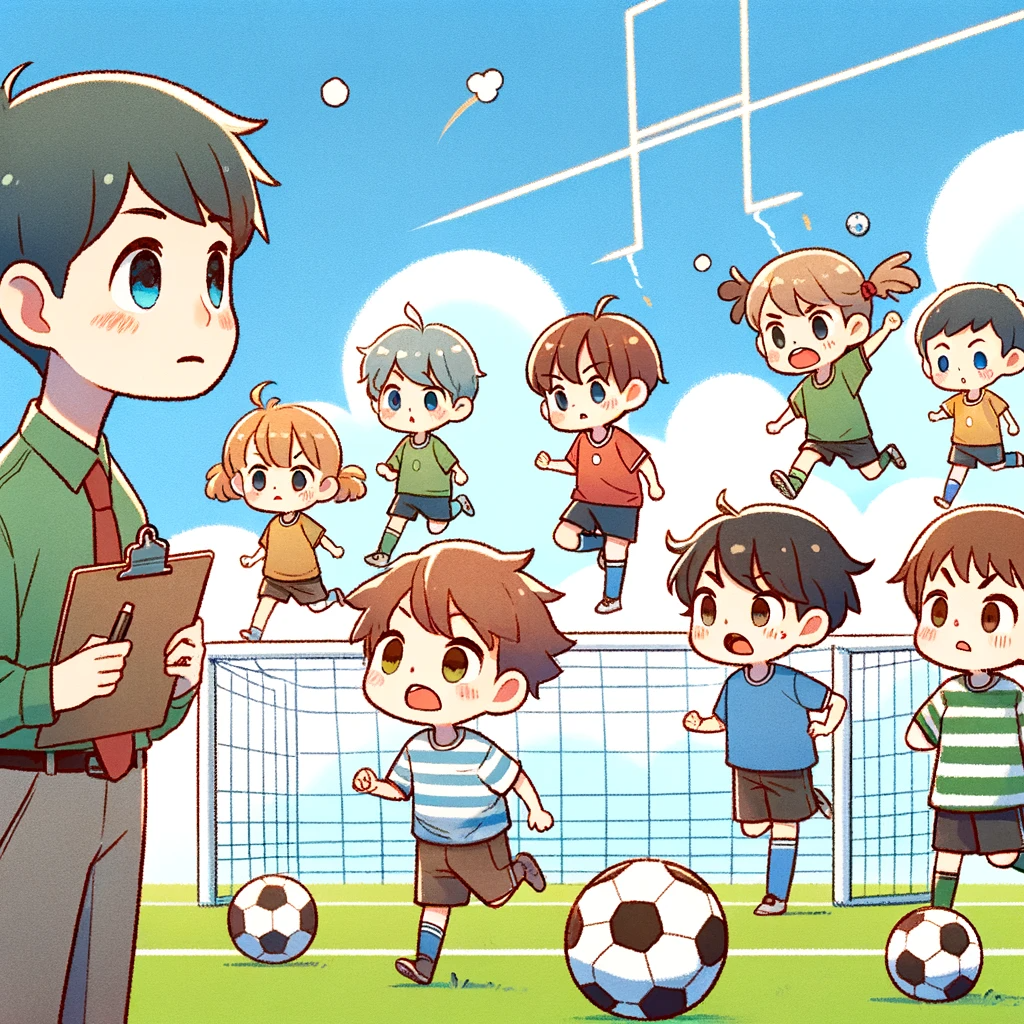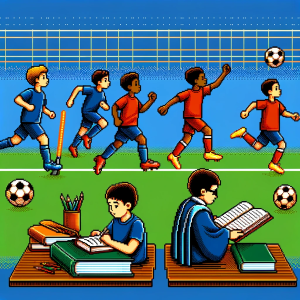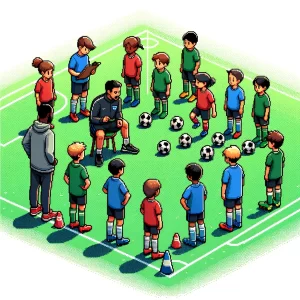
Mastering the Game: Enhancing Youth Soccer through Effective Effort Perception and Coaching Strategies
Recent research sheds light on the pivotal role of effort perception in youth soccer, presenting a game-changing perspective for coaches and players alike. The study, “Children can rate perceived effort but do not follow intensity instructions during soccer training,” delves into the intricacies of how young players understand and adjust their effort during play. This exploration into the minds of young athletes is not just about numbers on a scale; it’s about understanding their developmental journey and optimizing training to foster a deeper connection with the game.
As we navigate through these findings, we’ll uncover actionable strategies for coaches, aimed at enhancing player development and cultivating a generation of self-aware and strategically adept soccer players.
Understanding Perceived Effort in Children:
Children can accurately rate their perceived effort during soccer training, as indicated by the significant correlation with heart rate measures. This ability improves with age and cognitive development, suggesting that older children are more attuned to their bodily signals. Coaches should consider age-specific strategies to help younger players develop this self-awareness.
Implications for Coaching:
- Tailored Training Sessions: Coaches should design training sessions considering the players’ age and cognitive development. Younger players might need more guidance in understanding and adjusting their efforts, while older players might benefit from more autonomy and responsibility in managing their effort levels.
- Instructional Strategies: Given that children might not follow intensity instructions as intended, coaches should emphasize clear, age-appropriate communication. Using visual aids, relatable metaphors, or reference points from previous experiences can help children better understand and follow through with intensity adjustments.
- Cognitive Development Considerations: Incorporating cognitive challenges in training that mimic game scenarios can improve children’s decision-making and effort adjustment capabilities. Activities that require quick changes in intensity or strategy can help develop both their physical and cognitive flexibility.
Implications for Player Development:
- Self-Regulation Skills: Developing players’ ability to self-regulate their effort can lead to improved performance and reduced risk of injury. Coaches should integrate practices that encourage players to monitor and adjust their effort, enhancing their long-term development and enjoyment of the game.
- Developmental Awareness: Acknowledging the link between cognitive functions and effort perception, coaches and trainers can create a more supportive environment that caters to the developmental stage of each player. This approach ensures that all players, regardless of age or cognitive development level, have the opportunity to thrive.
- Feedback and Encouragement: Providing continuous feedback and encouragement can help children understand the importance of effort regulation. Celebrating small victories and improvements in self-awareness and intensity regulation can motivate players to continue developing these skills.
In conclusion, this study highlights the importance of perceived effort in children’s soccer training and their challenges in adjusting intensity as instructed. Coaches and player development professionals are encouraged to integrate these insights into their methodologies, fostering an environment where young athletes can understand, evaluate, and regulate their efforts effectively. This not only improves performance and skill development but also enhances the overall sporting experience for young players.
For an in-depth understanding and further reading, access the full article here.
Advance Your Soccer Knowledge
Join the elite circle of soccer aficionados who appreciate the game beyond the field. ‘This Week in Soccer’ bridges the gap between complex soccer analytics and practical application. By subscribing to our newsletter, you’ll access exclusive content, infographics, and forums that will enrich your understanding and love for soccer. Embrace the science and strategy of soccer today. Subscribe and transform your perspective!



